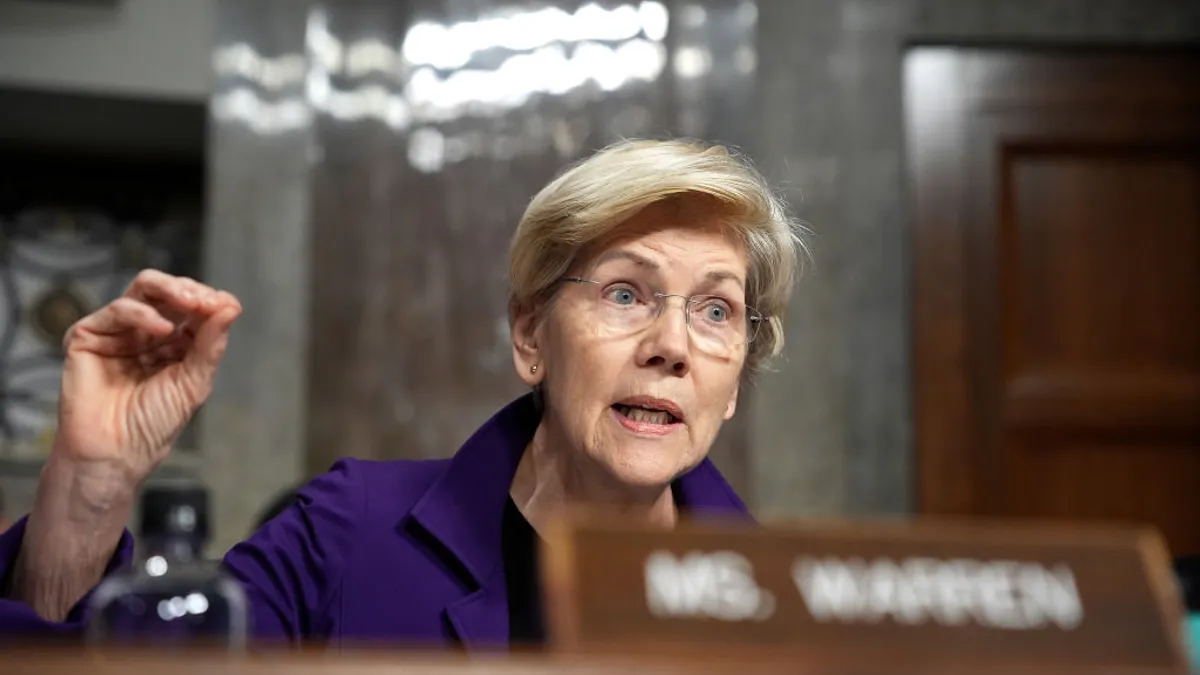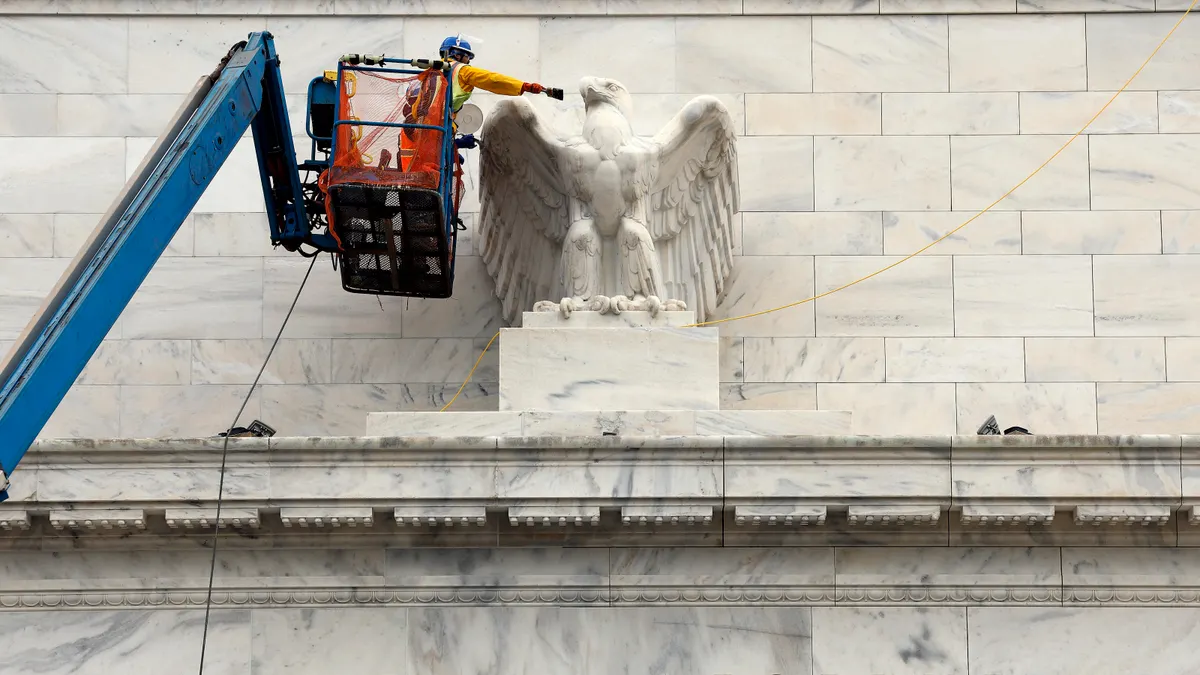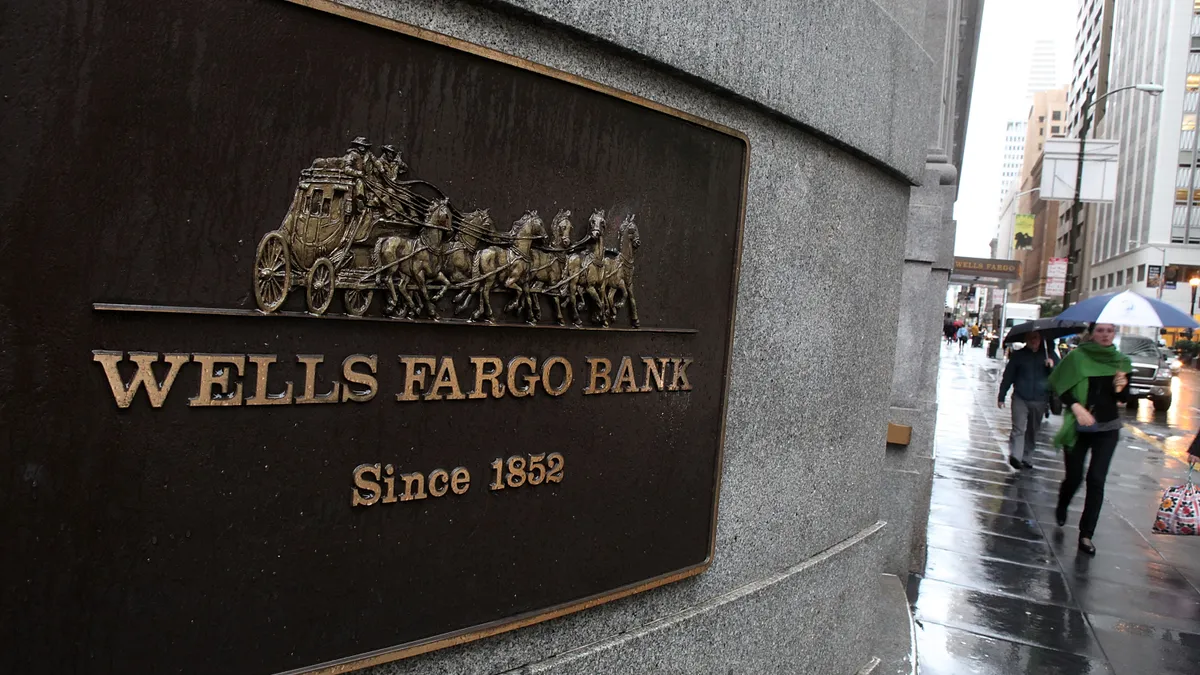The Senate confirmed Federal Reserve Gov. Michelle Bowman, by a 48-46 vote Wednesday, to serve as the central bank’s vice chair for supervision.
Bowman’s bid received no support from Democrats – a change from 2018, when she joined the Fed board with a 64-34 vote from the Senate.
Once she’s sworn in, the central bank will have a point person on supervision for the first time since Feb. 28, when Michael Barr, who’s still serving as a Fed governor, stepped down from the post.
Barr’s tenure was morbidly unpopular among Republicans, punctuated by their deafening rejection of a proposed 19% increase in capital requirements for the U.S.’s largest banks. A revised proposal cut the increase in half, but as political winds shifted last year, even the compromise stalled.
Sen. Tim Scott, R-SC, the Senate Banking Committee’s chair, referenced Barr’s term in his nod to Bowman.
“During the previous administration, we saw the negative impacts of poor direction in the [vice chair for supervision] position, which is why I called on the Trump administration to quickly fill the role and restore accountability at the Federal Reserve,” Scott said. “I look forward to working with Vice Chair Bowman to increase transparency in financial regulation, right-size our regulatory framework, and protect access to credit for hardworking Americans.”
Sen. Elizabeth Warren, D-MA, the committee’s ranking member, warned it would be “especially dangerous” to put Bowman in charge of supervision, noting the Fed governor’s recent support for lifting the long-standing asset cap on Wells Fargo and the acquisition of Discover by Capital One.
“In her six years on the Federal Reserve Board, Governor Bowman has hacked away bit by bit at the safeguards put in place after the 2008 financial crisis,” Warren said. “Deregulating Wall Street right now would throw gasoline on [President Donald] Trump’s economic fire.”
In particular, Warren noted Bowman’s opposition to updates to the Community Reinvestment Act and what the senator called a “concerning lack of independence from the White House.”
“At her [nomination] hearing, she refused to recognize the economic uncertainty created by President Trump’s tariffs and their potential impact on financial stability – putting her at odds with [Fed] Chair [Jerome] Powell, Fed staff, and economic experts across the political spectrum,” Warren said. “It was clear that Governor Bowman did not want to be seen as even indirectly criticizing President Trump.”
When asked during her April nomination hearing on the effect of Trump’s tariffs, Bowman said, “I think, as we were watching and waiting to see how the path for these policies continues to evolve, we’ll understand what the economic effects of those policies will be.”
When pressed further, Bowman said, “Senator, what I would tell you is that we’re starting on a strong economic foundation” – a reply Warren dubbed a “nothing” answer.
Since Barr’s resignation, Bowman has been vocal on several aspects of bank supervision. In a January speech, she advocated for letting go of “binary thinking” that pits regulators against banks in an adversarial way and assesses individual reforms on whether they’re too tough or too lenient on banks.
It’s important for regulators to strike the right balance in promoting safety and soundness while not stifling economic activity, Bowman said.
On innovation – in perhaps a reference to cryptocurrency and other digital assets, she said in February, “We must prioritize understanding the risks and benefits of new technologies before developing a supervisory posture, especially when … using the ‘soft’ power of supervision to discourage its use.”
In March, Bowman called out the delays in mergers caused by the Fed’s approach to negative comments on the applications it receives.
At her April hearing, Bowman affirmed she is committed to maintaining the Fed’s independence with respect to monetary policy and the central bank’s responsibilities related to the economy – a running concern after Trump’s blistering and sustained criticism of Powell.
Trade groups, by and large, expressed support for Bowman on Wednesday.
“With her deep experience as a federal regulator, state regulator and community banker, Governor Bowman understands the real-world impact U.S. banking rules can have on the economy and consumers,” American Bankers Association CEO Rob Nichols said in a statement Wednesday. “We applaud the president for nominating her and look forward to working together to develop a rational bank regulatory framework that preserves the commitment to safety and soundness that we all share, while giving banks of all sizes the chance to support their customers and communities and drive the U.S. economy forward.”
“Vice Chair Bowman’s experience will be vital in guiding thoughtful oversight that fosters innovation and maintains the strength of our financial system," Consumer Bankers Association CEO Lindsey Johnson said.
Consumer advocate Better Markets, however, warned that Bowman’s values don’t reflect everyday borrowers and risk hastening a repeat of 2008.
“While claiming to care about Main Street, she enthusiastically and unequivocally supports those banks’ priority of deep, broad and mindless deregulation, which will no doubt contribute to another horrific crash,” Better Markets CEO Dennis Kelleher said in a statement Wednesday.






















